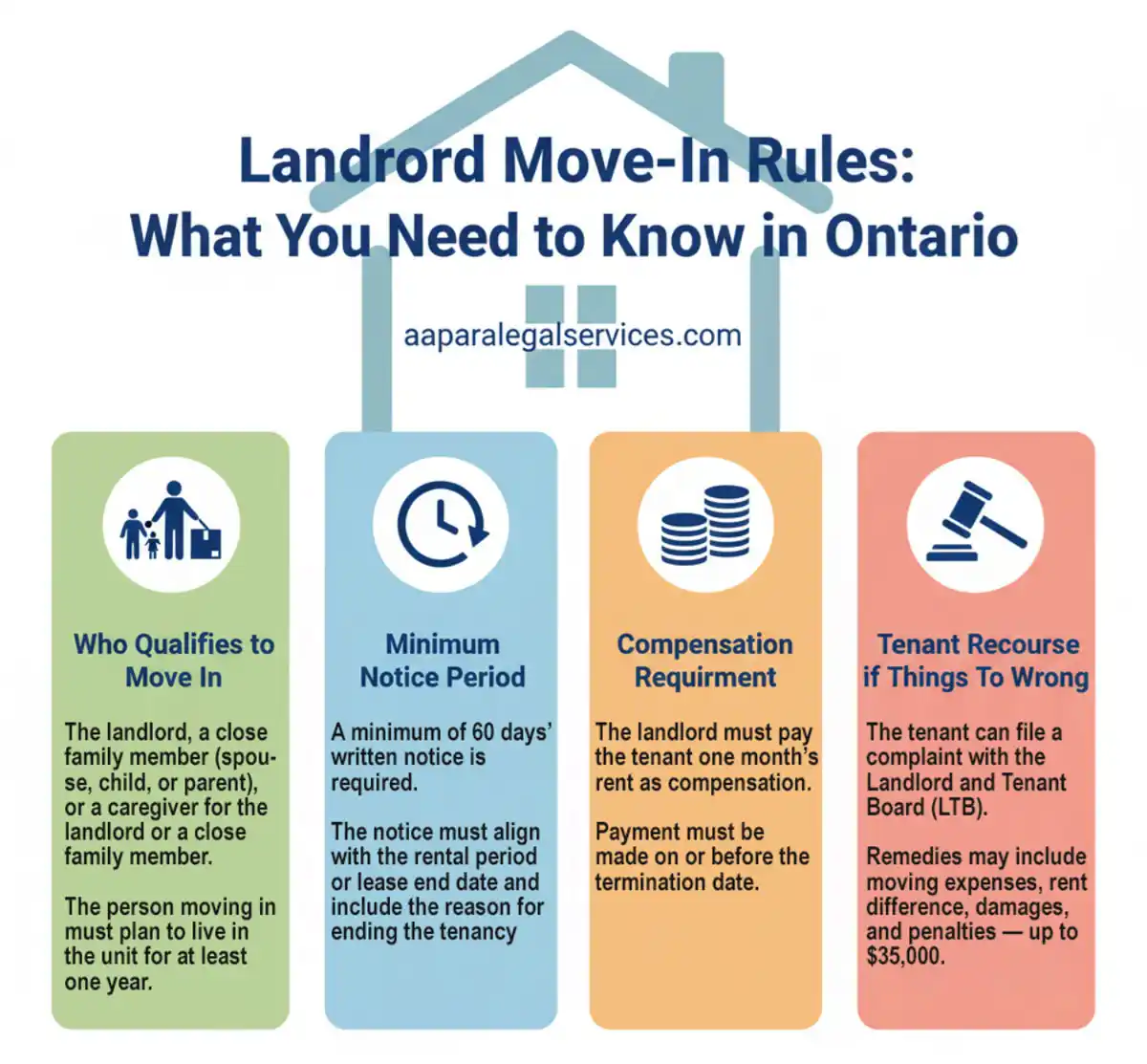It's a common question we hear from both landlords and tenants: can a landlord ask a tenant to leave so they or a family member can move in? In Ontario, the answer is yes – but only under strict legal conditions. The law has clear rules to protect tenants from being unfairly displaced, while still allowing landlords to reclaim their properties for legitimate personal use.
In fact, in 2022, over 1,400 terminations were initiated in Ontario due to landlords or their family members planning to occupy the unit. (Source: Tribunals Ontario Annual Report) This article explains what both landlords and tenants need to know about these rules, and how to handle the process fairly.
When Can a Landlord Ask a Tenant to Leave?
A landlord may request to end a tenancy if they or a qualified family member genuinely intend to move into the unit and live there as a primary residence. Under Ontario law, the person moving in must usually be the landlord, their spouse, a parent, or a child, and they must intend to stay for at least one year.
What Makes It Legal?
The law requires that the landlord's request is made in good faith. If the property is not part of a small personal residence (like a duplex), compensation is typically required—often one month's rent. Tenants have the right to challenge the eviction if they believe the reason is not genuine.
What If a Tenant Suspects Bad Faith?
If a tenant vacates the unit and later discovers that the landlord didn't move in or re-rented the unit quickly, this may be a case of bad faith. Tenants in this situation may be entitled to financial compensation. It's crucial to gather evidence like rental ads, witness statements, or proof that the landlord never moved in.
For Landlords – How to Protect Yourself
If you're a landlord planning to move into your rental property, make sure to document your intent thoroughly. This could include statements, moving arrangements, or confirmation from the family member moving in. Avoid vague language when communicating with tenants and always comply with notice periods. Consulting with a licensed paralegal will help ensure your plans are legally sound.
How AA Paralegal Services Can Help
AA Paralegal Services has helped many landlords and tenants navigate this sensitive issue. With years of experience and a deep understanding of the Residential Tenancies Act, AA Paralegal Services works to ensure a fair and legal process for all parties involved. Whether you're a landlord seeking clarity or a tenant defending your rights, we're here to help.

Frequently Asked Questions
- Can a landlord evict a tenant just to move in?
- Yes, but only if the move is genuine and the landlord or their close family member intends to live there for at least one year.
- Is the landlord required to offer compensation?
- In most cases, yes—especially when the property has multiple units. Compensation usually equals one month's rent.
- What happens if the landlord doesn't actually move in?
- If the tenant can show bad faith, they may be entitled to compensation and could take the case to a hearing.
- What if I suspect the eviction reason is false?
- Keep records and consult a licensed paralegal. If you can prove bad faith, you may have legal remedies.
- How can AA Paralegal Services help?
- We guide both landlords and tenants through the legal process to protect their rights and ensure compliance with Ontario law.
